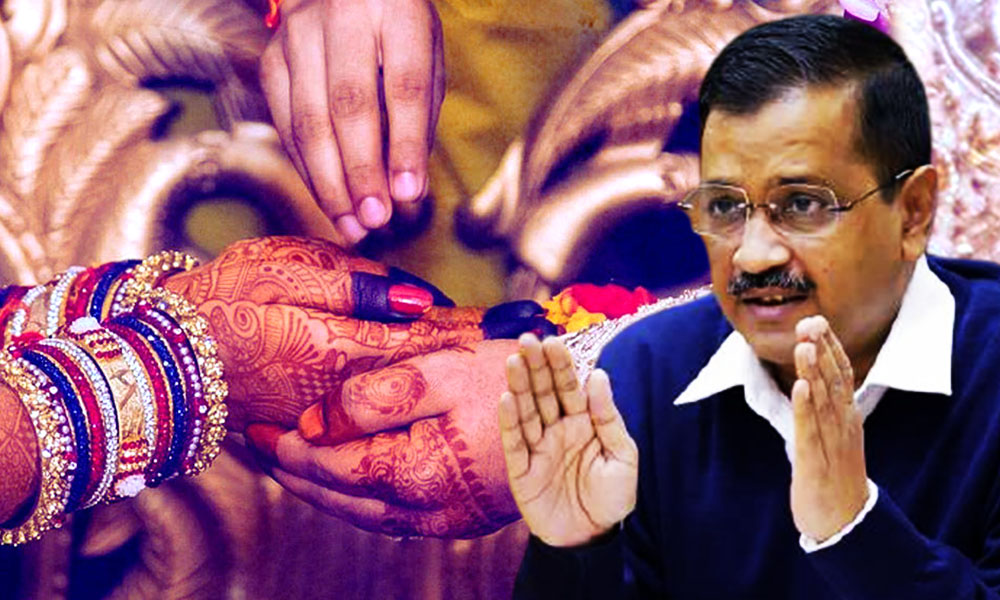
Image Credits: India TV
Delhi Govt Issues Guidelines To Protect Interfaith Couples, To Set Up 'Special Cell'
Writer: Ritu Yadav
A journalism undergrad with experience in Reporting News, Content Writing and Public Speaking, Blogging. Skilled in Communication, Public Speaking, Management, Interpersonal skills and Leadership. Her interest involves writing about issues that generally go unnoticed, with a strong interest in politics and social welfare.
Delhi, 28 March 2021 8:21 AM GMT | Updated 28 March 2021 8:22 AM GMT
Editor : Rakshitha R |
Rakshitha an engineer turned passionate journalist with an inclination for poetry, creative writing, movies, fiction, mountains and seclusion. Not a part of the social process but existential.
Creatives : Abhishek M
" An engineer by profession, Abhishek is the creative producer of the team, graphic designing is his passion and travelling his get away. In more ways than one, he makes the content visually appealing."
The guidelines issued by the Social Welfare Department also included safe houses for the accommodation of the couples whose relatives or communities are hostile towards their relationship and a 24-hour helpline to assist them.
The Delhi government, on Sunday, March 28, issued a standard operating procedure (SOP) to guard inter-faith and inter-caste couples against harassment and threats in the capital. It directed the formation of 'special cells' by Deputy Commissioners of Police in respective districts to investigate such cases.
The SOP issued by the Social Welfare Department also included safe houses for the accommodation of the couples whose relatives or communities are hostile towards their relationship and a 24-hour helpline to assist them.
The Supreme Court ordered the government in March 2018 to set up a "special cell" in each district comprising the Superintendent of Police, social welfare officers of districts and others to receive petitions or complaints of harassment and threats against intercaste and interfaith couples.
As part of the plan, the Delhi Commission for Women's existing 181 toll-free women's helpline would be used to acknowledge grievances from harassed couples.
The SOP stated, "The telecallers, trained to handle distress calls and already aware of available services, can provide necessary assistance/advice to the couple in distress. If required, they can be further trained to handle such calls," The Hindu reported.
Accommodation in a safe house
After hearing the couple, the DCP in charge of the concerned region, heading the 'special cell', would bring the facts to the knowledge of the District Magistrate's attention and convey their demand for a 'safe house'. The police would also arrange transportation for such couples.
Last week, violence had erupted at Southeast Delhi's Harijan Basti over interfaith marriage. Following the incident, the police registered a case and arrested four people in connection with the case.
The SOP also specified that the couple would be provided with adequate protection in the form of a PSO (protective service officer), and the 'safe house' would be guarded by the DCP of the region in question. The couple would be briefed about the threat to them and they would not be exposed until the problem is resolved.
Strict punishment
If the couple does not choose to remain in a safe house, the special cell will protect them wherever they decide to stay. If the preliminary investigation determines that the threats are authentic, the DCP in charge would order an ACP or sub-division police officer to lodge an FIR against those threatening the couple.
Read Also: Punjab: BJP MLA Thrashed By 'Protesters', Farmer Leaders Booked
 All section
All section














